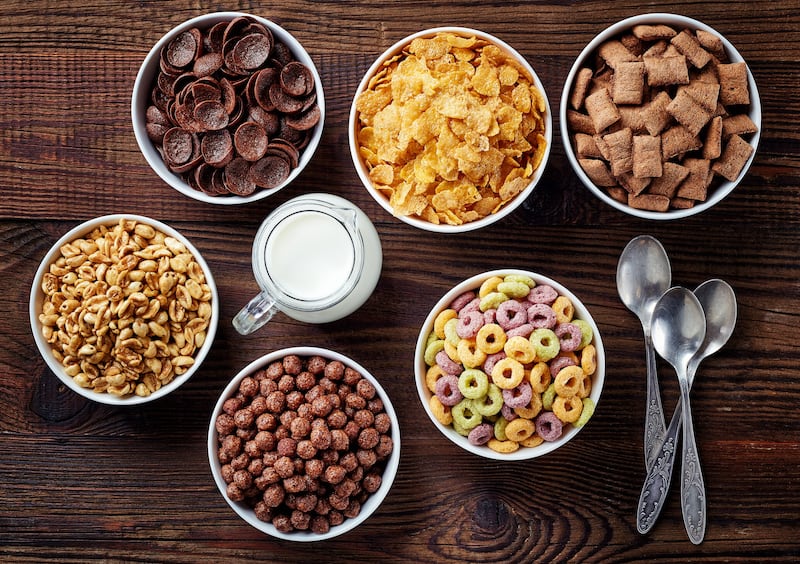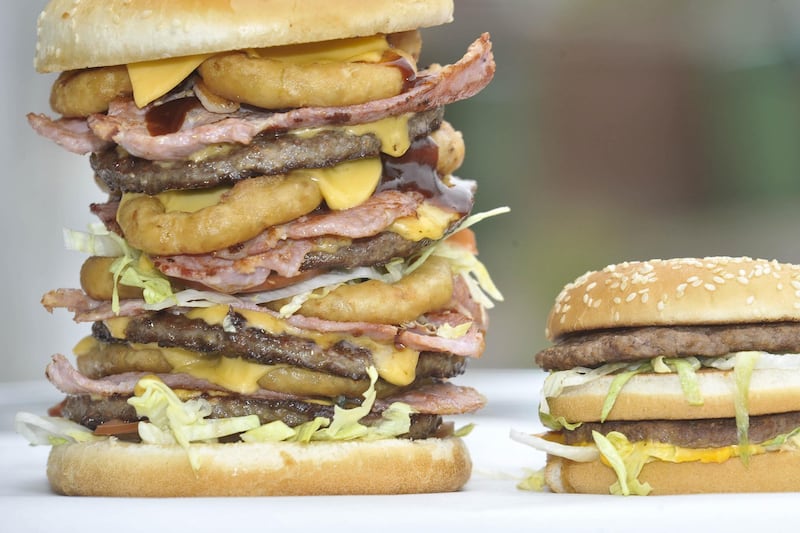The headlines this week have once again been highlighting the adverse health effects of ultra-processed foods.
The difference this time is that for those of you who are regular readers of my column and consider your diet healthy, you may have been surprised to learn that a lot of what you are consuming is defined as ultra-processed food.
It’s not just ready meals and fizzy drinks that are a problem.
The term ultra-processed foods – or UPF – was only coined 15 years ago but it makes up about half the foods we now eat, and the potential health effects are enormous.
Increasing our risk of conditions such as type 2 diabetes, obesity, cardiovascular disease, dementia and cancer, the food industry is putting our health under threat.
Our diets are packed with these convenience foods, and even if you do your very best to eat a nutritious, healthy, balanced diet, it can be almost impossible to avoid these factory-produced foods.
Everything from wholemeal bread, breakfast cereals, shop-bought houmous, flavoured yoghurts, ham and sausages to your favourite biscuits and soft drinks, may contain ingredients you are unlikely to find in nature.
Over the years food manufacturers and diet clubs have encouraged us to eat foods with a whole host of health claims, from low fat foods to fortified cereals.
Any health claim on the front of a pack is likely to be thanks to an ingredient that has been added in by a food manufacturer, rather than highlighting the natural benefits a whole, unprocessed, naturally healthy food.

Let’s take a low-fat yoghurt as an example. This is a popular choice for many people who are watching their weight, but read the ingredients list and you will find something like this:
"Yogurt (milk), strawberries (9%), water, modified maize starch, flavourings, colouring. Food: beetroot juice concentrate,sweetener: aspartame, acidity regulators: citric acid, sodium citrates, Stabiliser: Pectins."
Compare this to the ingredients list on a natural yoghurt, which reads simply: "Ingredients: yoghurt."
I know which one I want in my trolley, don’t you?
Just last month, the World Health Organization voiced concerns about the long-term health consequences of sweeteners like aspartame potentially increasing the risk of "type 2 diabetes, heart diseases and mortality".
Aspartame is found as a sugar replacement in so many so-called healthy foods, and yet it may be worse for us than the alternative.
Here are some simple ideas to help you reduce your intake of UPFs:
- Get into the habit of knowing what’s in your food. If you read the ingredients label and can’t recognise every ingredient as a foodstuff, I would suggest you leave the food on the shelf and choose a less processed alternative.
- Choose foods that don’t need an ingredients list.
- Cook more. The more you can cook from scratch, the better. That way you will know exactly what’s in your food and you will eat a whole lot fewer UPFs.
- Batch cooking is not just for winter soups and spaghetti bolognese. Traybake your favourite veg with plenty of herbs and some fish or chicken for a quick and handy dinner that can be eaten cold for lunch the next day. Make summer curries and stews with lighter, more seasonal ingredients.
- Unless you have to follow a dairy-free diet, you are probably better off drinking milk and eating cheese than the highly processed-dairy free alternatives.
- Vegetarian or vegan meat alternatives like quorn and veggie burgers can be highly processed. Use pulses, nuts, seeds, tofu or quinoa as your protein alternative, or add dairy products or eggs into your diet.
- Choose foods that are eaten the way nature intended.







